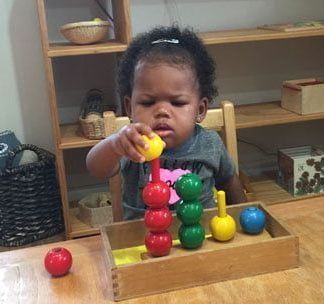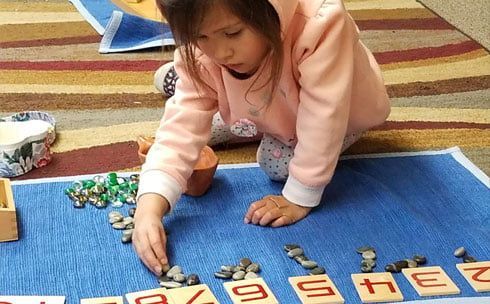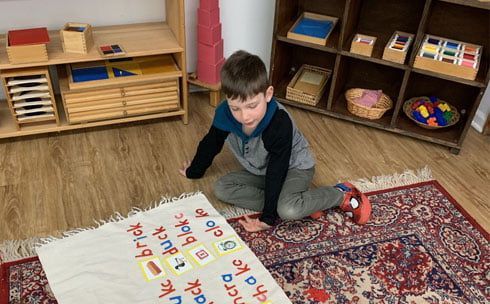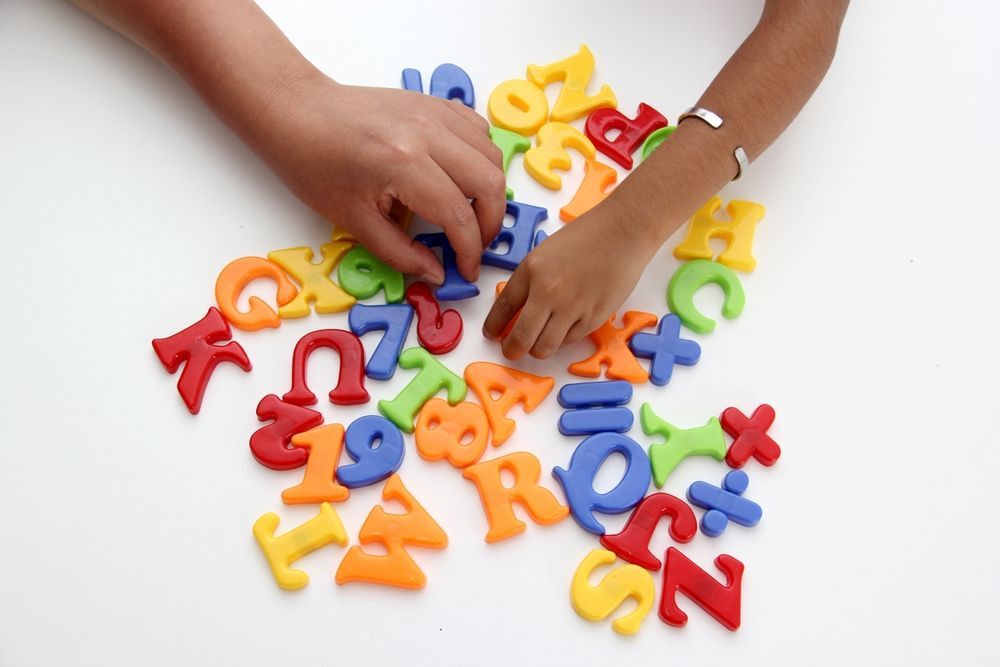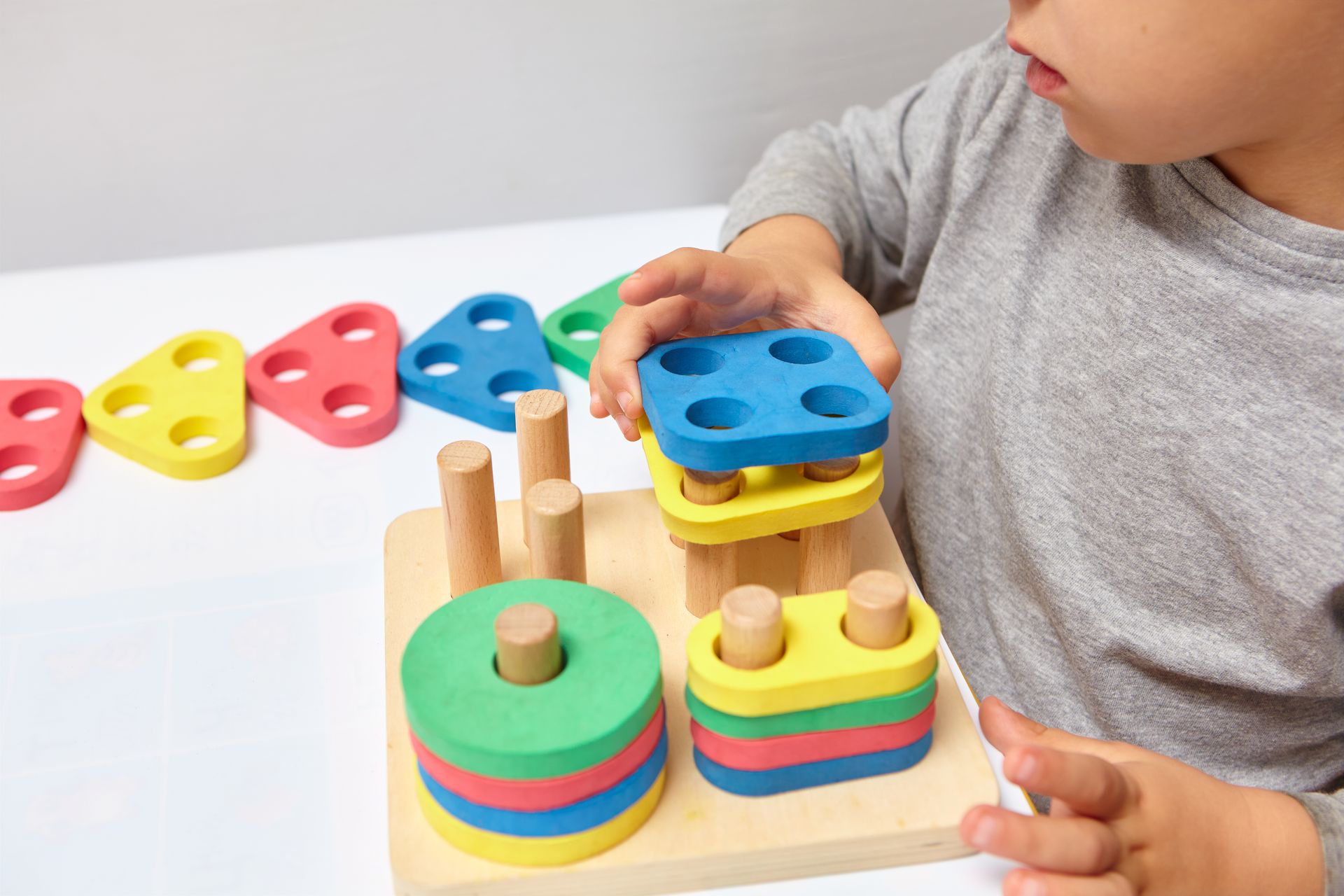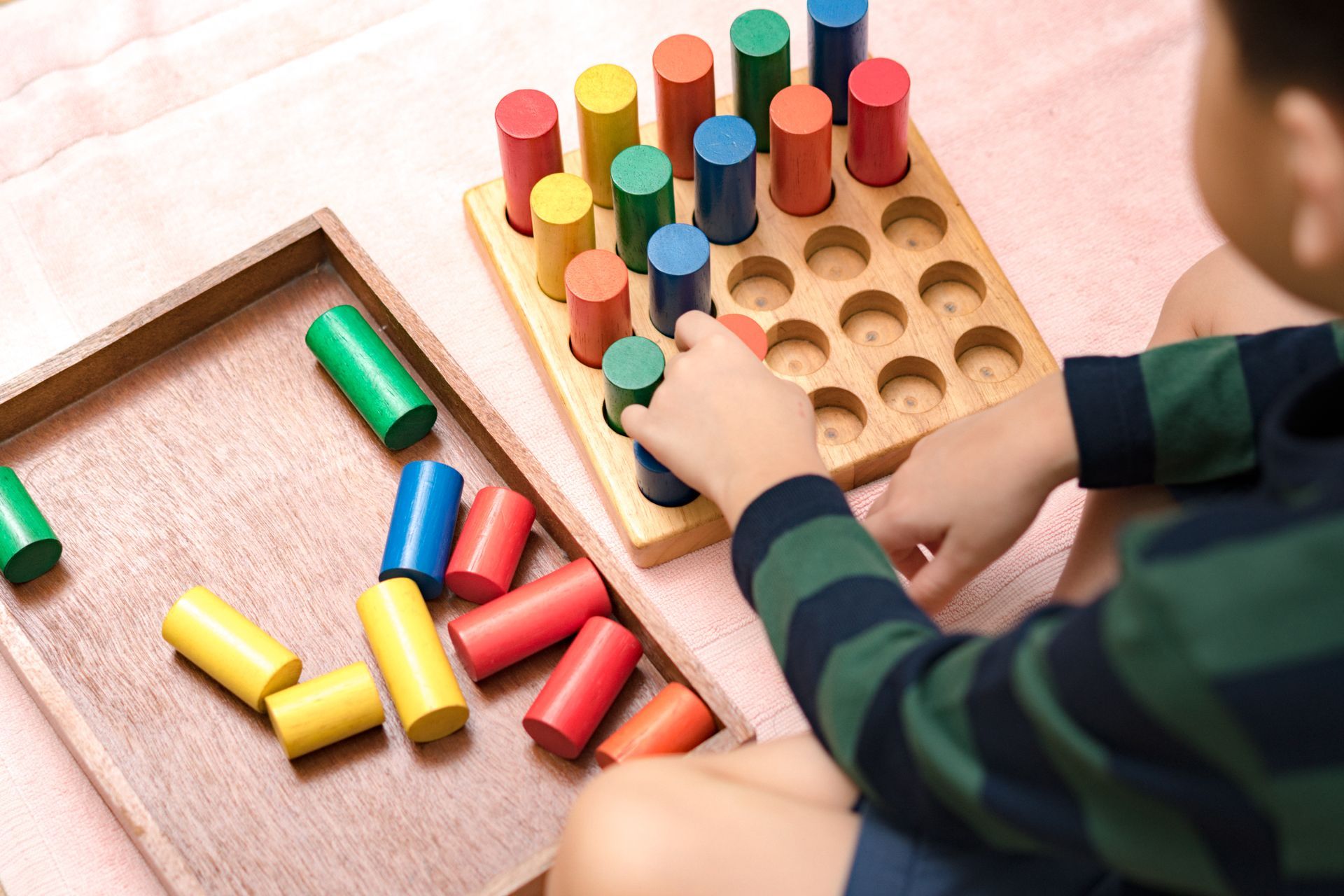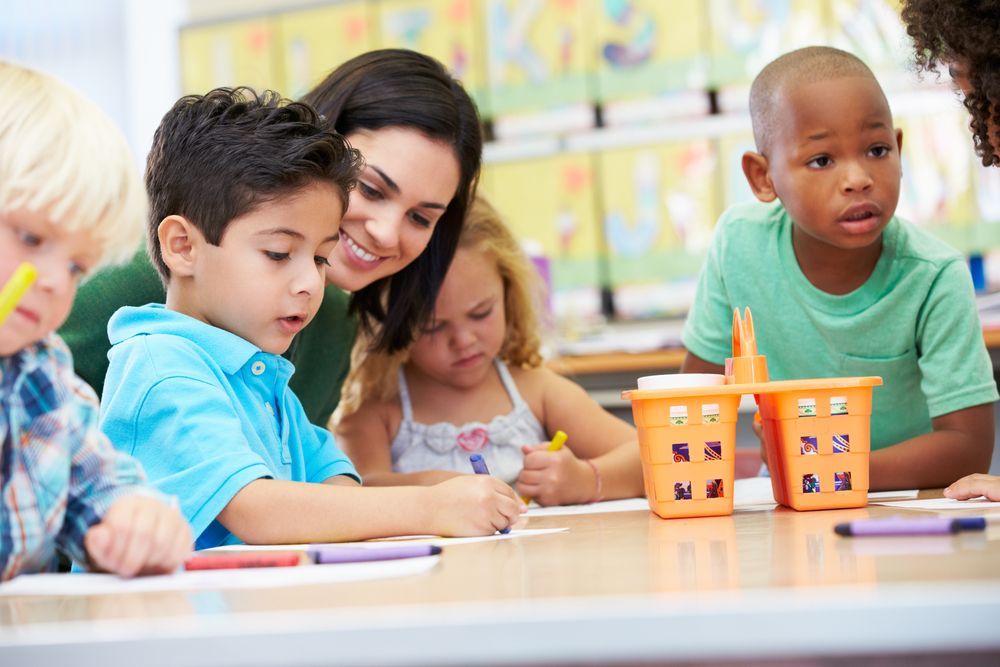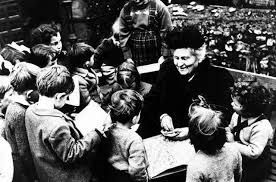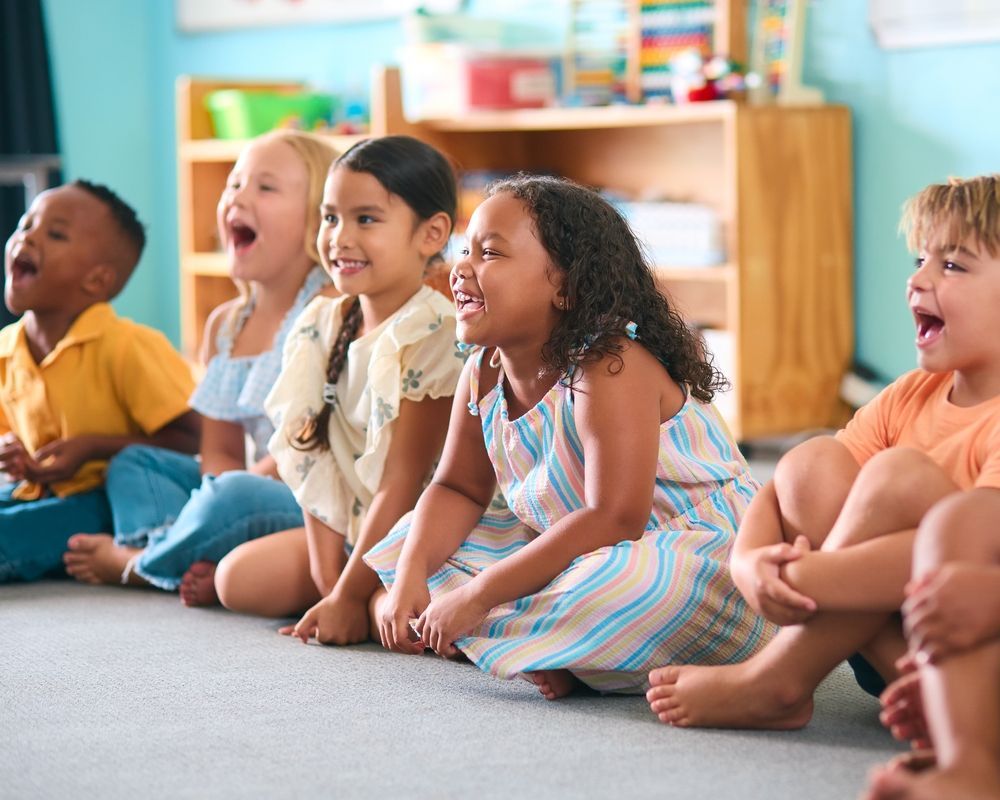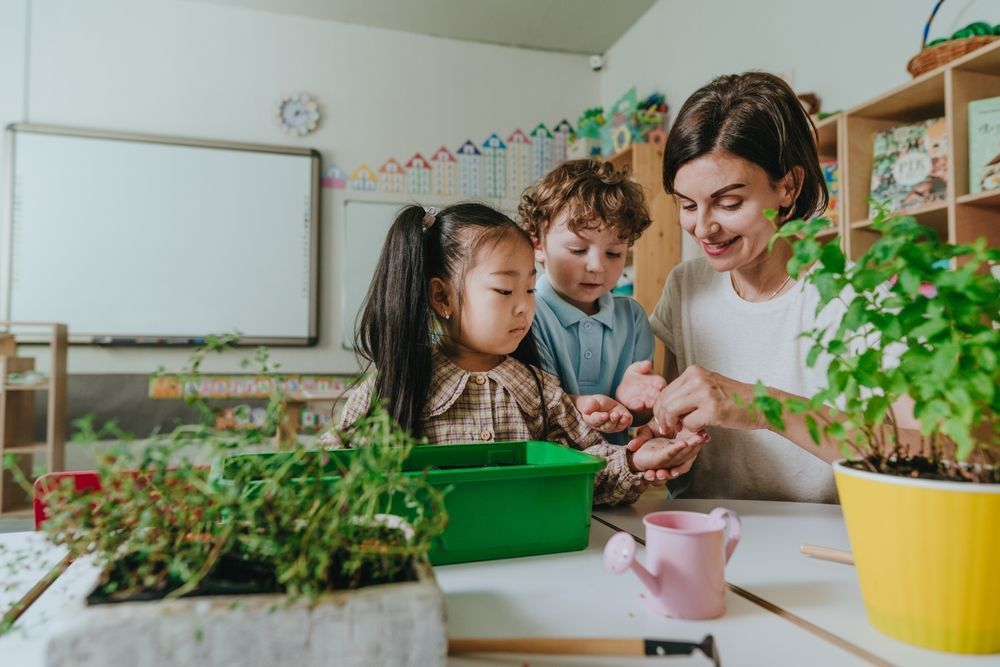Early Childhood Social-Emotional Learning Activities
Share this Article:
Children begin learning how to navigate their emotions long before they can explain them. A
toddler might show frustration through tears, while a
preschooler begins to recognize and name their emotions. These early years shape how children connect with others and manage feelings. Social-emotional learning activities help guide that growth, giving young children the tools to understand themselves and relate to the world around them. A supportive environment, grounded in respect and consistency, makes all the difference.
Helping Your Child Build Emotional Confidence
Emotional confidence starts when children feel seen and heard. When adults name emotions like happy, sad, frustrated, or excited, children begin to connect words to their experiences. That language gives them a way to express what they’re feeling instead of acting it out.
At home, small moments matter. Reading picture books about feelings, using emotion cards during play, or asking questions like “How did that make you feel?” helps build self-awareness. These simple activities create space for children to reflect without pressure.
In Montessori classrooms, teachers guide rather than correct. They might say, “I see you’re upset. Would you like to take a break?” or create a quiet area where the child can rest until they’re ready. These consistent responses show children that emotions are part of life, not something to hide.
Over time, children who feel safe expressing their emotions tend to show more confidence, patience, and empathy in how they relate to others.
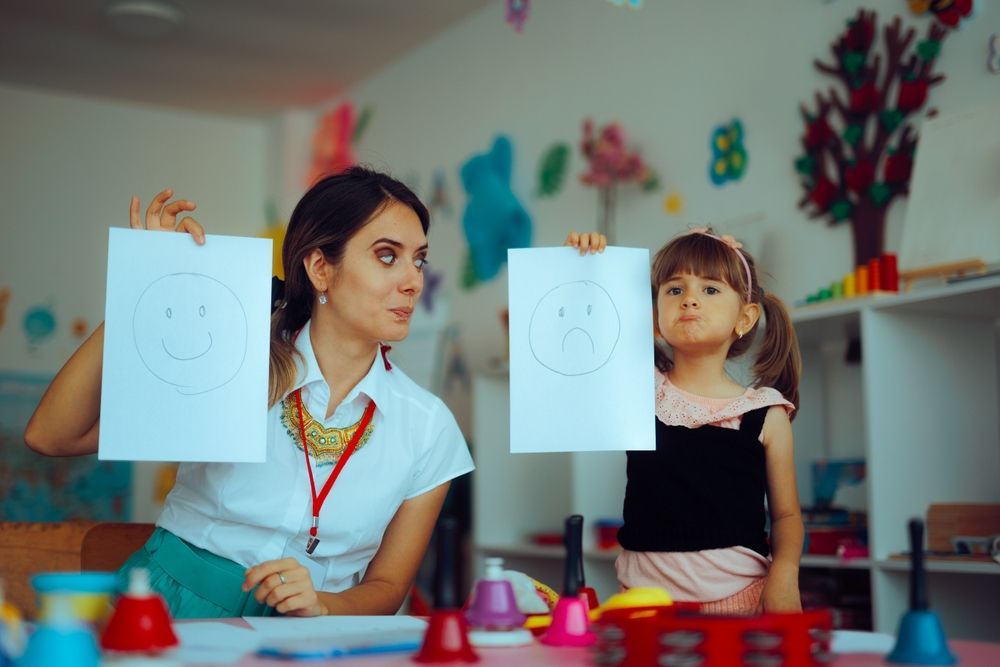
When Big Feelings Feel Too Big
Young children often experience emotions that feel overwhelming. A sudden tantrum, tears without explanation, or quiet withdrawal can all signal that a child is struggling to process what they feel. In these moments, they don’t need quick fixes. They require presence, patience, and space.
Learning activities that strengthen regulation can make a lasting difference. One example is a simple breathing practice using fingers as a visual guide. A child holds up one hand and traces each finger slowly, breathing in and out with each pass. This gives them a calming rhythm to focus on.
Montessori classrooms include quiet areas where children can retreat when they feel upset or overstimulated. These spaces are respected, not treated as punishment, which helps children take ownership of calming down.
Over time, they begin to recognize what they require: a pause, a breath, a moment alone. They learn to trust that those needs will be acknowledged without shame or judgment.
How Montessori Supports Emotional Growth
Montessori education begins with the belief that children are capable of developing emotional strength through meaningful experience. Instead of focusing on praise or correction, the environment invites children to practice empathy, independence, and care for others in real situations.
Social-emotional activities are part of daily life in the classroom. Grace and courtesy lessons help children learn how to greet others, wait their turn, and resolve simple conflicts. These are not one-time lessons. They are revisited often, through real interactions that give children the chance to try again.
Mixed-age classrooms play an important role. Older children model kindness and patience, while younger ones learn by watching and participating. These relationships help everyone build confidence in their place within the group.
Rather than being told how to behave, children develop internal awareness through observation, conversation, and quiet guidance. That approach encourages emotional growth in a lasting, meaningful way.
Montessori-Inspired Social-Emotional Learning Activities
Families typically want to encourage emotional growth at home but aren’t sure where to start. The good news is that these activities don’t need to be complex. A few thoughtful routines can make a big impact, especially when they reflect the calm, respectful tone of Montessori environments.
Here are a few ideas to try at home:
- Create a calm space: Set up a quiet area with a soft chair, a timer, and a few comforting objects. Encourage your child to visit it when they need a break.
- Practice grace and courtesy: Role-play greetings, table manners, and asking for help in a kind way.
- Use emotion cards: Let your child choose a card that matches how they feel. Talk about what might help them move through that feeling.
- Model peaceful problem-solving: Use phrases like “Let’s find a way to fix this together” or “Can we try again?”
These simple activities help children notice, name, and manage their emotions more confidently.
Preparing for the Elementary Years with Strong SEL Skills
The foundation built during the early years shapes how children manage friendships, group work, and challenges later on. When a child enters elementary school with the ability to express emotions, listen to others, and take responsibility for their actions, they’re more prepared for the social and academic expectations ahead.
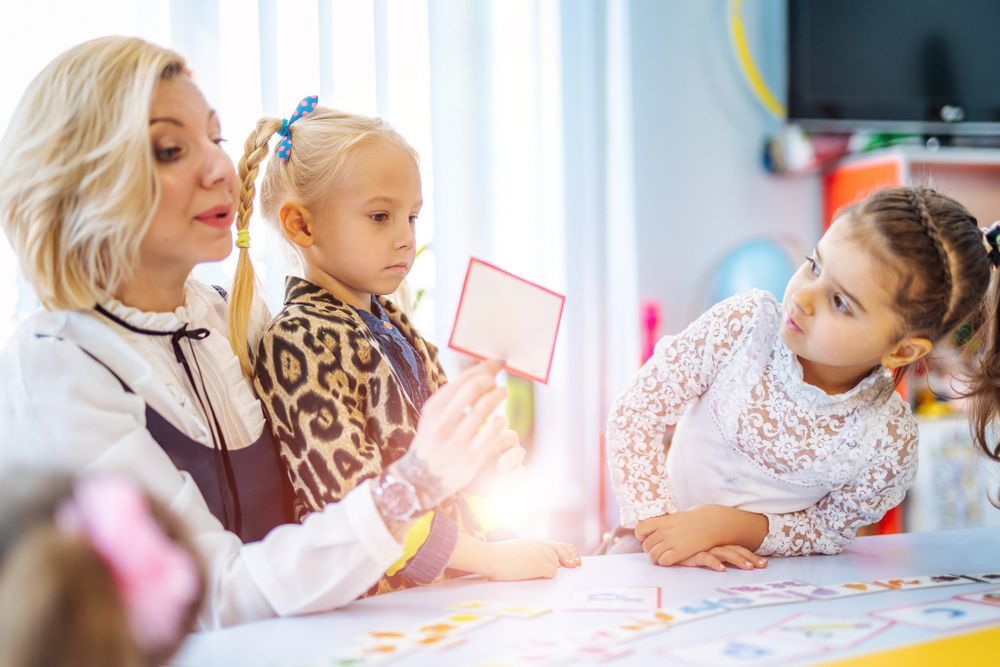
Social-emotional learning activities in early childhood help create these habits. A child who can say, “I feel frustrated” or “Can I have a turn?” is more likely to solve problems peacefully and work through setbacks with resilience.
In Montessori classrooms, the three-year cycle supports ongoing growth. Younger children observe older ones managing emotions and leading with kindness. By the Kindergarten year, they step into that leadership role themselves. They gain confidence not just through academic work but through meaningful social experience.
This preparation helps children succeed in more structured environments while staying connected to who they are.
Nurturing Lifelong Empathy and Confidence
Emotional development builds through everyday moments like helping a friend clean up, waiting patiently, or offering a kind word after a disagreement. These early experiences shape how children show up in the world and relate to others.
Montessori classrooms are designed to support this growth every day. Teachers offer gentle guidance, children collaborate across ages, and kindness is part of the culture. Over time, children build the confidence to express themselves clearly and the empathy to consider how others feel.
Families who value emotional growth often see their children become more independent, more compassionate, and better able to handle life’s ups and downs.
If you’re looking for a school that honors the whole child in social, emotional, and academic growth,
Mansio Montessori welcomes you to visit.
Schedule a tour to see how our classrooms support lifelong learning and connection, starting in the very first years.
Contact us today to learn more or book your visit.

